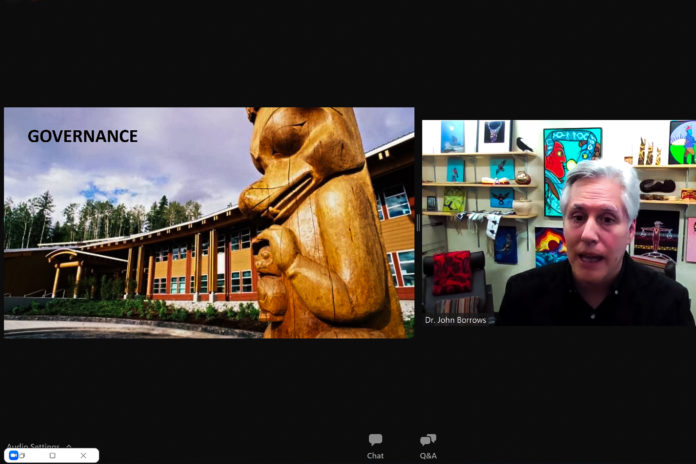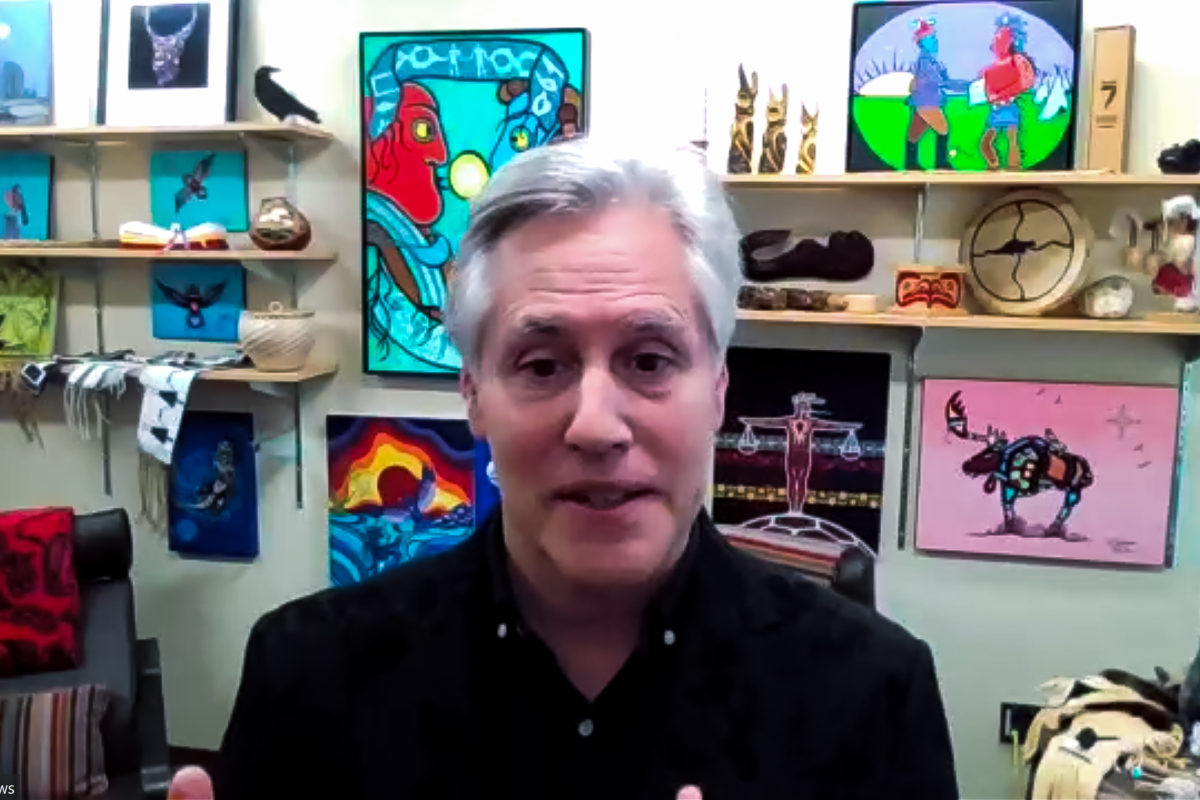

The 2022 Lodhi Memorial Lecture featured John Borrows, the Canada Research Chair in Indigenous law at the University of Victoria. The lecture focused on Indigenous Peoples as legal agents revitalizing their laws and authorities.
Borrows was contacted by Shannonbrooke Murphy, the endowed chair of human rights at St. Thomas University, around eight months before the event. Borrows specializes in Indigenous and Canadian law and has taught for 30 years in different institutions, such as the University of Toronto and Osgoode Hall Law School.
As an Anishinaabe academic, Borrows is interested in the role Indigenous Peoples have in the restoration of their laws, values and languages.
“The point is that law is something that we do. It’s an activity, which means it doesn’t just come to us from legislatures and courts and ministers of the Crown,” said Borrows. “It comes from you and I in terms of helping to make it and helping to live it.”
In his lecture, he said many Indigenous communities participated in decision-making and law-making.
“In this big house, people will assemble those purposes to create law like family law and commercial law and constitutional law, etc,” said Borrows. “But they will do so again, not by reading from statutes, but they will put on button blankets with beautiful masks, and they will dance around these fires.”
He said a Potlatch is a feasting tradition where people transact businesses, confirm marriages, discuss adoptions and more.

The Potlatch tradition was outlawed in Canada in an amendment to the Indian Act from 1884 to 1950. This was an attempt to weaken communities, but they resisted the ban and went underground to keep this tradition alive.
He continues by talking about the importance of language in understanding the diversity and worldviews of Indigenous Peoples. For example, Algonquian languages are 70 per cent verbs, meaning the sounds of the language often have correlations with activities that take place in the physical world, he said.
“We can learn about love or truth or respect from looking at the physical world around us and drawing analogies from that,” he said.
Borrows thinks Canada is beginning to understand that Indigenous law is based on disagreements and negotiations between clans, similar to Canada’s political parties in the legislative power.
Education is essential for the restoration of Indigenous law, he said, which is why UVic is creating a new Indigenous and common law degree.
“It’s exciting to see that Indigenous law is part of a broader framework of what we see in this country in terms of guiding our affairs,” he said.
Borrows said he wanted to send students a positive message about how educating themselves on Indigenous matters can make a difference.
“Nuance is sacred.”
